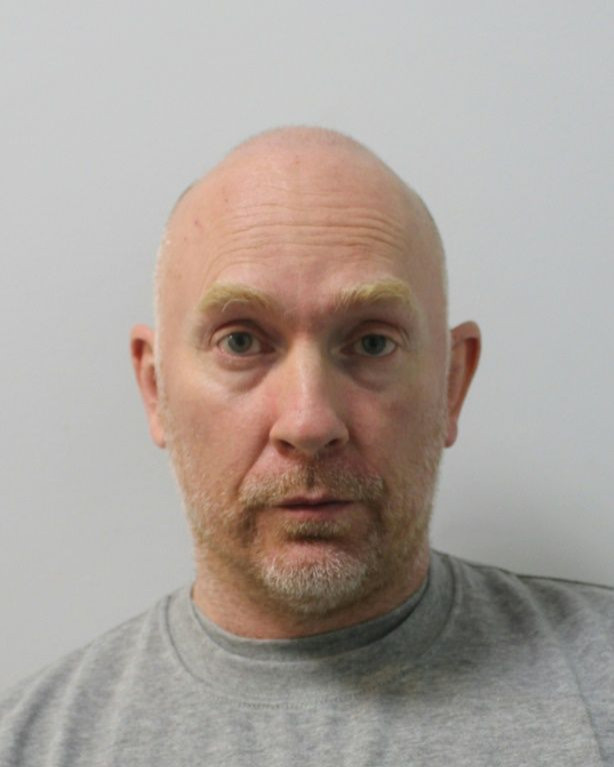UK Policeman Jailed For Rest Of His Days For Everard Murder
A British police officer who falsely arrested a woman for breaking coronavirus restrictions, then kidnapped, raped and murdered her, was given a rare whole-life jail term on Thursday.
Judge Adrian Fulford told Wayne Couzens, 48, his offences were "grotesque", after he snatched Sarah Everard off the streets of south London in March.
Everard's disappearance sparked one of Britain's most high-profile missing persons investigations and protests calling for better safety for women in public spaces.
But there has been widespread horror and revulsion at the involvement of a police officer, who exploited lockdown restrictions and abused his position of trust to kill.
Couzens, who served with the elite diplomatic protection unit of London's Metropolitan Police, admitted kidnapping, rape and murder at a hearing in July and was sacked.

Sentencing him at the Old Bailey, in central London, Fulford called Couzens' actions "devastating, tragic and wholly brutal" and said his victim was "wholly blameless".
"The misuse of a police officer's role such as occurred in this case in order to kidnap, rape and murder a lone victim is of equal seriousness as a murder for the purpose of advancing a political, religious ideological cause," he added.
Couzens, who will die in jail, becomes the latest of only 60 criminals who will never be considered for release.
Former colleagues said he had disgraced their uniform, and the Met Police said it was "sickened, angered and devastated" by his crimes.

The high-profile case refocused attention on how the police handle complaints of violence against women and girls in Britain.
Questions have been raised about why previous complaints of indecent exposure against Couzens, said to have been a user of sex workers and violent pornography, were not dealt with.
The leader of Britain's main opposition Labour party, Keir Starmer, a former chief prosecutor for England and Wales, said legislation needed to be tightened.
He also called for a review of how Couzens was able to "slip through the net", despite a series of "warning signs".

Starmer's Labour colleague, Harriet Harman, a former women's minister, said the case had "shattered" women's confidence in the police and called for the resignation of Met Police Commissioner Cressida Dick.
The Met, Britain's biggest police force, was already under fire for its botched initial handling of the double murder of two sisters in a London park last year.
In that case, detectives were accused of not taking their disappearance seriously, and two officers were suspended for taking crime scene photos and sharing them on WhatsApp.
Demonstrators outside the Old Bailey said the Met Police had "blood on their hands".
Roxanne Tiffany, 20, said: "I think what a lot of women are maybe grasping for is 'we're sorry and this is what we're doing to ensure this doesn't happen again'."
The student said she had attended previous vigils for Everard, which were controversially broken up by Met officers for breaching social distancing rules.
Couzens snatched Everard, a 33-year-old marketing consultant, as she walked to her home in Brixton, south London, from a friend's house in nearby Clapham.
Security camera footage showed Couzens, who had just finished a 12-hour shift guarding the US Embassy, stopping Everard by the side of the road.
He showed her his warrant card, then used his police handcuffs to restrain her, before driving her in a hire car to Kent in southeast England, some 80 miles (128 kilometres) away.
Couzens, a married father-of-two, initially told officers he had been forced to seize the university graduate and hand her over to a Romanian gang to whom he owed money.
But he later told a psychiatrist he had used his police belt to strangle Everard, then set her body on fire. Her remains were found in woods a week after she disappeared.
Everard's former boyfriend said she was "savvy and streetwise" and would not have got into a car with a stranger except "by force or manipulation".
"The fact she had been to a friend's house for dinner at the height of the early 2021 lockdown made her more vulnerable to and more likely to submit to an accusation that she had acted in breach of the Covid regulations in some way," prosecutor Tom Little said.
© Copyright AFP 2024. All rights reserved.




















